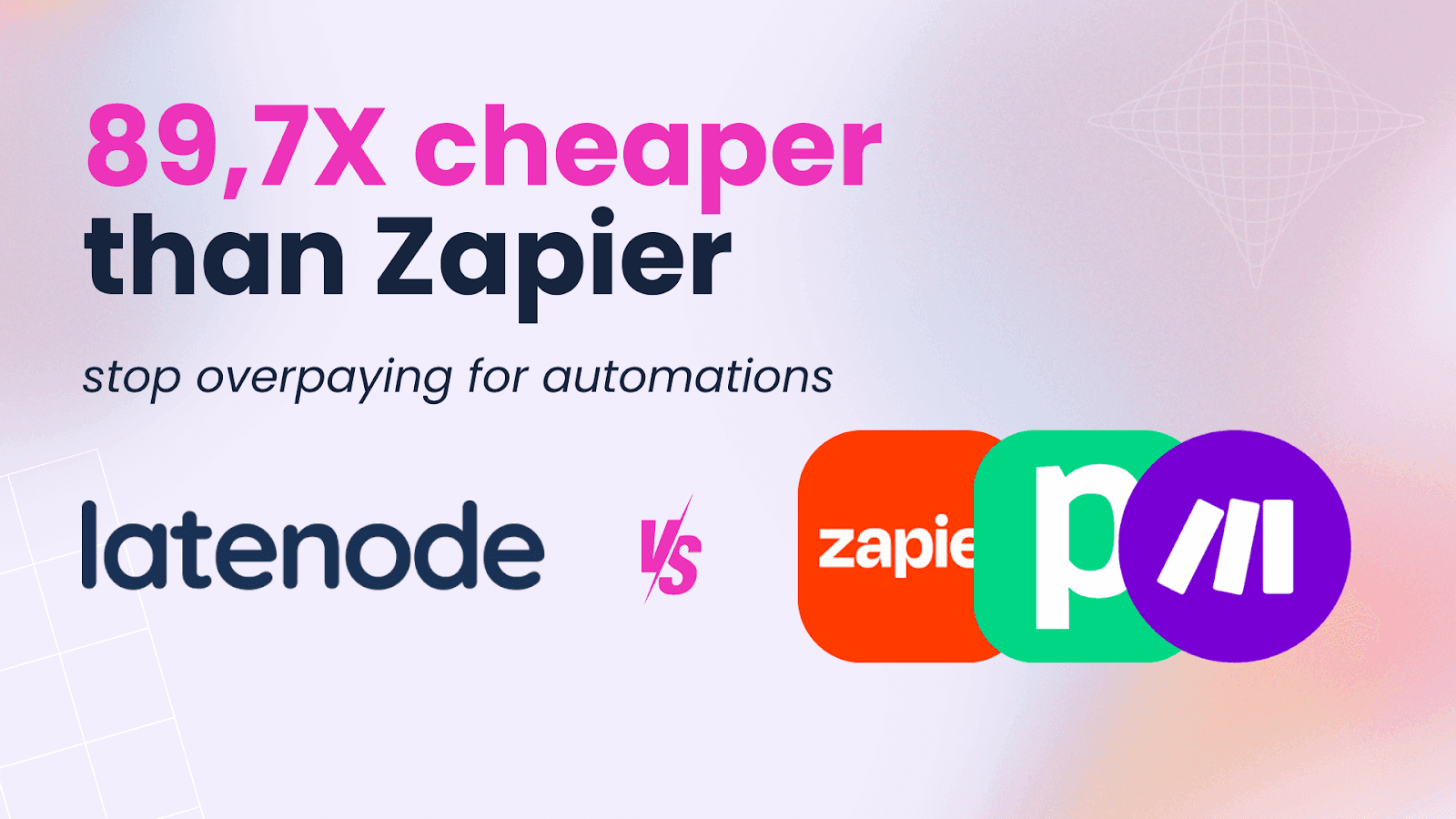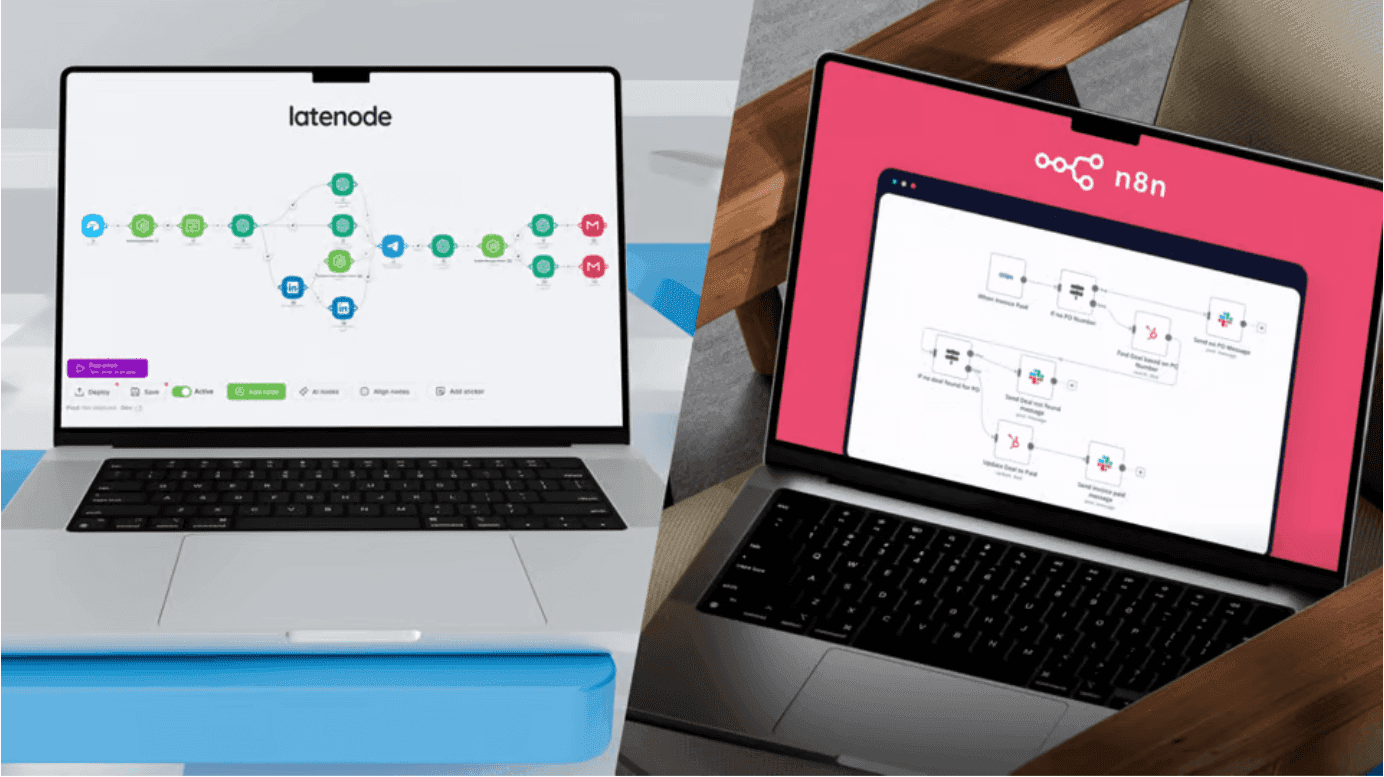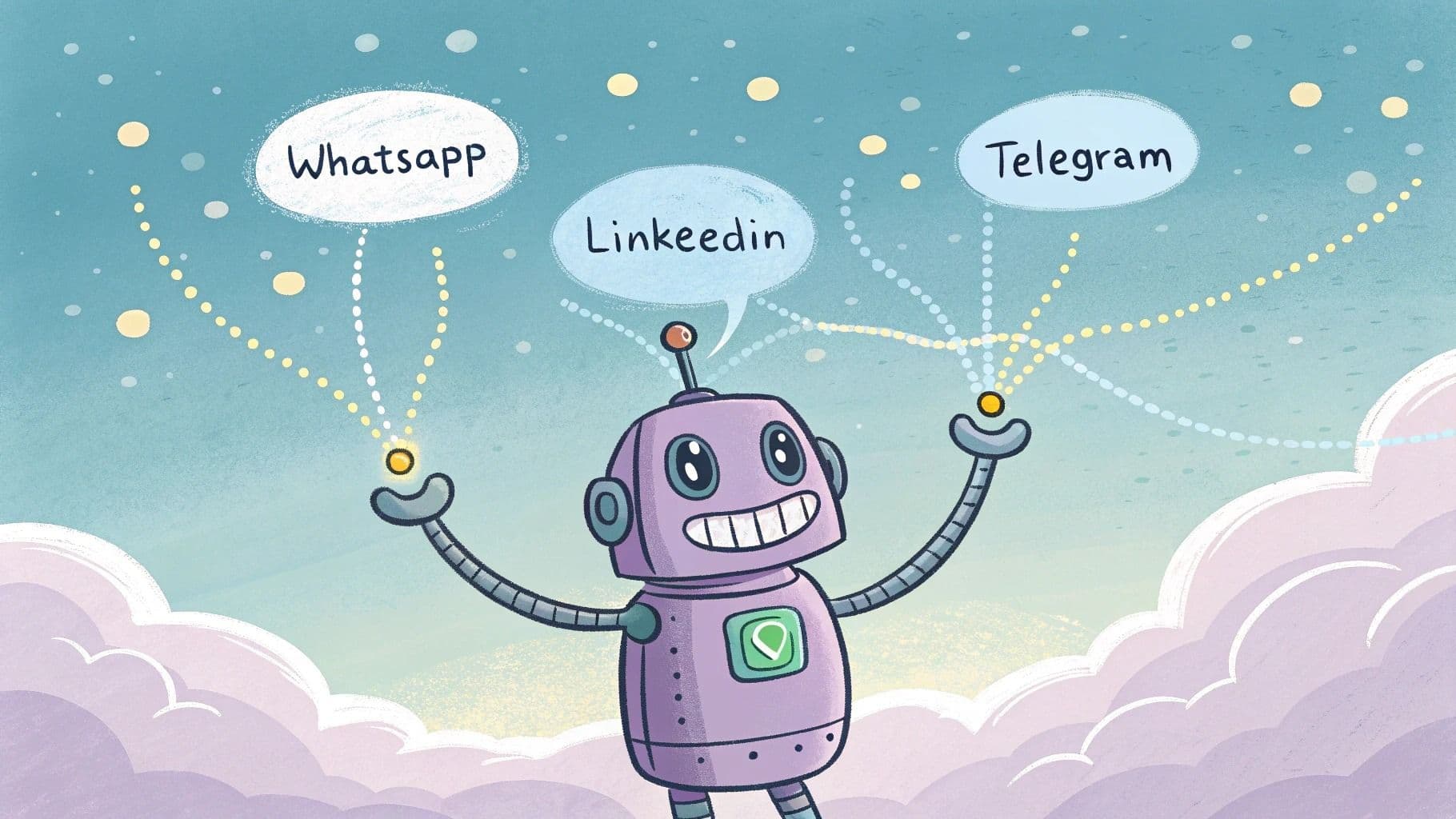Up to 89x Better Price: Why Latenode is the Most Cost-Effective Platform
Comparing the Same Scenario Across Different Low-Code Platforms: Make, Zapier, and Pipedream. Discover Why Latenode is the Best Choice for Your Business

TL;DR: The same scenario on Latenode cost just $1.38, compared to
$123.84 on Zapier,
$10.59 on Make.com,
$29.00 on Pipedream.
Hi, low-code enthusiasts! It's Daniel from Latenode. Be careful, because this article might save you hundreds or thousands of dollars on automating your business processes. However, I'm not sure you know how to spend that money wisely. But one thing I do know…
Latenode is the most affordable low-code platform ever
Why am I so confident? I've measured it. For this purpose, I built the same scenario on four platforms:
- Zapier
- Make
- Pipedream
- Latenode
The only difference is that some platforms call them 'Zaps' or 'workflows', but we’ll use 'scenario' to refer to our automation.
Overview of the scenario used for comparison
There's a wild world of cold outreach nowadays. To succeed, you not only have to automate but also personalize with AI. For this, I built a scenario that:
- Retrieves 2000 unique descriptions of companies from a Google Sheet where our prospects work.
- Generates personalized icebreakers for cold emails using two requests to the OpenAI API.
- Puts the results back into Google Sheet for use in cold email platforms that support custom variables.
Zapier – $123.84 for 2000 unique GPT icebreakers
To make this happen on Zapier, a Zap should consist of 1 trigger, 1 loop, and 4 actions. For generating 10 icebreakers, my Zap consumes 32 tasks.
![]()
Let’s multiply this number by 200 to see the cost for 2000 icebreakers.
That’s 6,400 tasks.
10,000 tasks on Zapier's professional plan costs $193.50 when billed monthly. So, the final price for 2000 icebreakers is $123.84
It's definitely cheaper than hiring a human to do the same amount of work.
Make – $10.59 for 2000 unique GPT icebreakers
Moving to Make, we find a visually pleasing interface for building scenarios. Here’s mine for generating icebreakers:
![]()
Using two ChatGPT modules for generating text makes it easier to control the result with two shaped prompts, one for generation and another for final editing.
52 operations are consumed for 10 personalized icebreakers.
Generating 2000 will consume 10,040 operations (as only 5 left modules are repeated several times, but the trigger and first Google Sheets are activated only once).
10,040 operations = $10.59
That's 11.7x less expensive than Zapier! Make may replace Zapier.
Pipedream – $29.00 for 2000 unique GPT icebreakers
Pipedream's UI, set to maximize revenue, lacks an iterator or loop feature for repeating a scenario part as needed, unlike Make and Zapier.
Here, we need to build two separate scenarios – one to retrieve company descriptions from Google Sheet and another to execute each as individual processes.
![]()
Generating 2000 icebreakers on Pipedream requires launching the scenario 2000 times.
Each run costs 1 credit.
2000 icebreakers = 2000 credits = $29
That's unexpectedly 3x more expensive than Make. Let’s continue our search for the optimal solution.
Latenode – Just $1.38 for 2000 unique GPT icebreakers (one dollar and 38 cents)
Finally, Latenode, where the same scenario is built for generating personalized icebreakers. Here’s the process:
![]()
Latenode's pricing model doesn't count the number of executed modules or tasks like Make and Zapier. Nor does it care about the frequency of scenario execution like Pipedream. It considers only the CPU resources your scenario consumes and the time it's active.
30 seconds of scenario execution = 1 credit.
1 credit according to pricing = $0.0019
So, how long does our scenario need to run for generating 2000 personalized icebreakers?
![]()
If it takes 109 seconds to generate 10 icebreakers, for 2000, we’ll need 21,800 seconds. Divide that by 30 seconds per credit, and we get 726 credits in total.
That amounts to $1.38
That’s correct. No mistakes here. Latenode could potentially replace every single low-code tool.
The same automation that costs $123.84 on Zapier requires less than two dollars on Latenode, offering an unrealistically disproportionate value to your business.
I'm not suggesting that other low-code tools are useless—they each have their unique advantages. However, for complex scenarios that require numerous operations, you should definitely consider using Latenode. I'll quickly write new guidelines on how to make HTTP requests from your Zapier or Make scenarios/workflows. This will enhance your automation without the need to switch to a different tool entirely. Stay tuned!
As a bonus, I'll share a secret: Latenode's Discord community is extremely supportive when you need assistance with scenarios. Reach out and expect support from their CTO or dev team. Begin your automation journey with no limits here: https://latenode.com
Cheers,
Daniel



